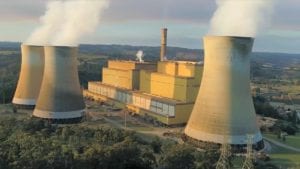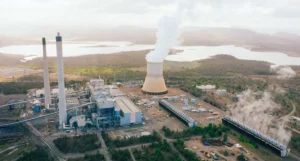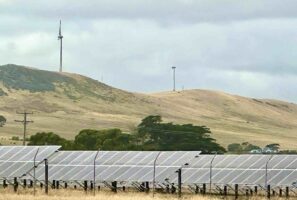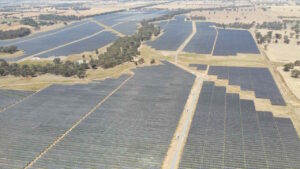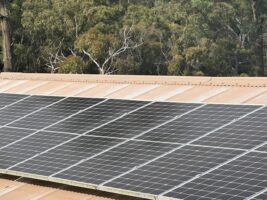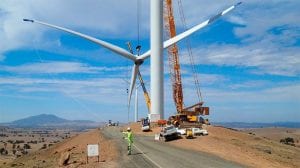
A federal government led by Malcolm Turnbull will “never” back policies that accelerate the shift to renewables, effectively tackle climate change, or help to phase out coal plants.
John Grimes, the CEO of Australia’s Smart Energy Council, said on Tuesday that the federal Coalition had been effectively hijacked by the far-right faction – the same group of ultra-conservative MPs which last week formalised their push for new coal power by forming the “Monash Forum.”
As we reported last week, the manifesto of that bizarre group – led by Craig Kelly and Tony Abbott, and featuring more than half of the LNP back bench according to some claims – can be summed up as “coal subsidies good, renewable subsidies or targets bad.”
And despite “getting the economics of coal and renewable energy entirely wrong, and completely misunderstanding how the electricity market operates,” said Grimes, it has managed to gather both media attention and leadership support.
As Giles Parkinson put it last week, “they have demanded Prime minister Malcolm Turnbull jump to their demands, and he has asked how high.”
Why? According to Grimes, because he is bound to.
“We know, since the last federal election, the Turnbull government will never support a policy that significantly increases renewable energy, tackles climate change, or rolls back the predominance of coal,” he told the told the Smart Energy Conference in Sydney Tuesday.
“Why? …Because the secret Coalition agreement between the National and Liberal parties which, guarantees Malcolm Turnbull’s leadership, strictly forbids it.
“And the reason this agreement is secret is because if the people of Australia knew that was the agenda at the heart of this government, they would reject it comprehensively.”
That’s because “in the real world,” says Grimes, Australian households and businesses continue to flock to renewable energy technologies like solar and battery storage – as evidenced by the current residential and corporate rooftop PV boom.
And it’s also driving the nascent battery storage boom, which Grimes predicts will extend to 450,000 homes, adding a total of 3.5GWh behind the meter battery storage capacity out to 2020.
“There is overwhelming public support on all sides of politics to move to the energy source of the future: renewable energy. It has enormous public support,” he said.
Add to that the ambitious renewable energy targets of most of Australia’s state and territory governments, among which 40 per cent by 2025 sits at the lower end of the scale, and what do you get?
“That all means that we are living … in a parallel universe. The parallel universe between the policies of the existing federal government and the real world of Australia; families, self-funded retirees, … the market and the public.
Opposition spokesperson, NSW Labor senator Kristina Keneally also touched on this mysterious disconnect in her address to the conference.
“It is significant that this group of people here today have ignored the negative headlines, the troglodytes in the Coalition government, and they’ve come together for Australia’s biggest solar, storage and smart energy gathering for the year,” she said.
“For reasons known only to themselves, the Turnbull government has repeatedly said that it would like to extend the life of old coal-powered stations and build new ones at taxpayers’ expense.
“We know that building new coal-fired coal power stations is going to be more expensive than building renewable energy storage that will back up … wind and solar power.
“And we know that extending coal-fired power stations only delays the transition, when what we need to be doing is ensuring the transition is smooth and that no one gets left behind,” Keneally said.
“What you might not notice if you pay attention to our politics, (is that) the argument is now over on the ground and in the boardrooms of Australia.
“We’ve only got one future energy system, and that system is driven by renewables and all the technologies and opportunities that renewables bring.
“Now we must listen when business says there is no appetite – and we are talking zero appetite – for building new coal-fired power stations,” she said.
“We must listen, if there is no appetite in our electricity companies for keeping ageing coal-fired power stations running and delaying the inevitable transition that you are all part of.
“And we must always remember, as we hear calls to nationalise the Liddell power station, that it was the NSW Liberal governmetn in 2014 that sold Liddell to AGL for zero dollars. And they were jollied along in that sale… by Abbott and Turnbull governments and their asset recycling program.”
Later in the day, Green Energy Markets analysts Tristan Edis also took a swipe at Turnbull, noting that he would need to stand up to his party’s pro-coal right faction if Australia was to meet its Paris climate obligations.
“What about the NEG? The answer to that, quite simply, is that Malcolm Turnbull needs to grow a spine on this particular issue, if it’s going to be meaningful,” he told the conference.
“It could be that the policy can work, if it’s designed the right way, but it must have a much more strengthened, more aggressive emissions reduction target to drive any kind of meaningful investment targets.
“The reality is, they don’t have a plan to deliver on even their relatively weak 2030 emissions reduction target.
“The current NEG is not sufficient to deliver on that, and they have to up that target. And that’s where I would see the opportunity,” Edis said.
“There’s no way around it, coal has to go … to meet these targets, and that leaves a big gap for others to fill.”


